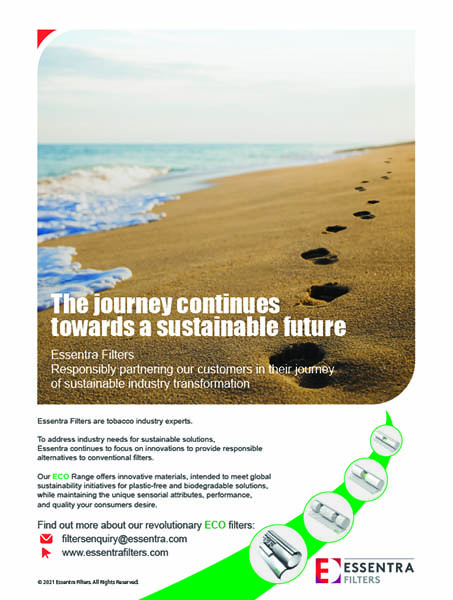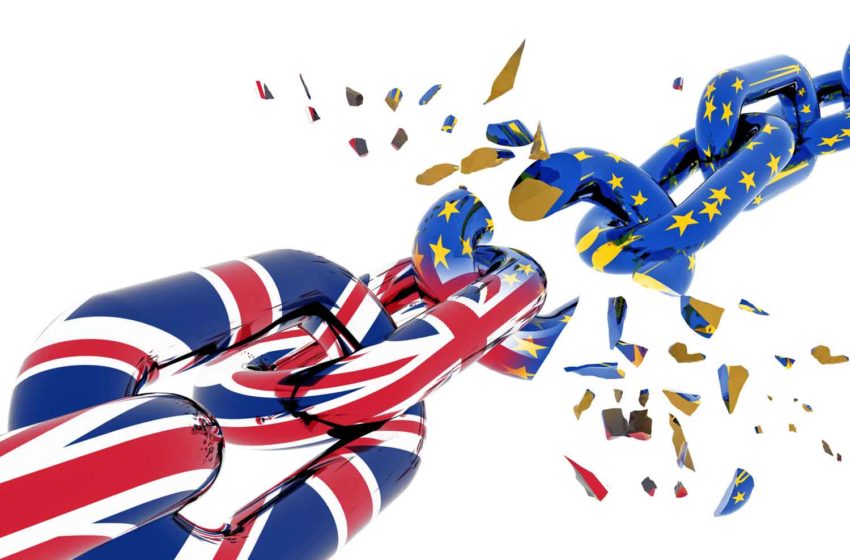
Brexit has given the United Kingdom freedom to expand its progressive tobacco harm reduction approach.
By Stefanie Rossel
Ever since the Royal College of Physicians (RCP) recognized the case for tobacco harm reduction (THR) in a 2007 report and Public Health England concluded that e-cigarettes were at least 95 percent less harmful than combustible cigarettes in 2015, the United Kingdom has been a forerunner in including reduced-risk products in its tobacco control strategy. The country’s 2017 Tobacco Control Plan (TCP), published by the department of health, stresses the importance of innovation and less harmful alternatives. Most anti-smoking and public health organizations as well as medical institutions in the U.K. support vape products as a reduced-risk alternative to cigarettes.
Data prove that the country is heading in the right direction: Smoking prevalence is at a record low level, down from around 20 percent in 2011 to between 13.8 percent and 16 percent now, depending on the survey, according to the U.K. government. This equates to 6 million to 7 million smokers. On the other hand, the number of vapers has steadily increased, from 700,000 in 2012 to 3.6 million users in 2021, The Guardian writes. In 2020, the newspaper says, e-cigarettes were the most popular smoking cessation aid.
Despite this obvious success story, the U.K. still has a long way to go to meet its goal of becoming smoke-free by 2030, which, according to the World Health Organization definition, means that less than 5 percent of the population smokes. Brexit has provided the country with the opportunity to shape comprehensive, proactive and progressive THR policy—the U.K. will no longer have to comply with the European Union’s Tobacco Products Directive (TPD), which, critics claim, contains several provisions hindering tobacco harm reduction.
Following its departure from the common market, the U.K. has been reviewing its Tobacco and Related Products Regulations, which represent the transposition of the 2014 TPD, the 2003 Tobacco Advertising Directive and the 2011 Tobacco Excise Directive rules into the U.K.’s national law. The review, required to take place five years after implementation, coincides with the four-year interval stipulated for review of the TCP, a new version of which is scheduled for introduction by the end of this year.

How to get Smoke-Free Faster
Expectations among stakeholders are high, as the TCP stated in 2017 that the government would consider whether the “current regulatory framework strikes the right balance and whether there is more we can do to help people to stop smoking.” In the past months, internationally respected academic institutions in the U.K., among them the RCP and the Cochrane organization, have emphasized their continuing support for vaping products as safer alternatives.
In July 2021, the All-Party Parliamentary Group (APPG) for Vaping released a report based on the results of an inquiry into U.K. tobacco harm reduction and opportunities post-Brexit. By gathering cross-parliamentary input, the APPG for Vaping hoped to help Parliament channel the voice of the community to ensure the next TCP will accelerate the U.K.’s push toward a smoke-free 2030.
Recommendations from the report include an extension of the current regulations for vaping to other noncombustible alternatives to cigarettes and the establishment of a new category in legislation that treats all noncombustible products as distinct from combustibles. This category should incorporate nicotine pouches, which are currently largely unregulated; heated-tobacco products, which are presently not afforded the same treatment as vapes; and snus, which to date has been illegal in the EU, except in Sweden, despite its significant success in helping reduce the number of smokers in the Nordic country.
The report also suggests that the rules for vaping be amended to ensure they cater to the needs of both existing vapers and the smokers who have tried them but not stuck with them—i.e., allowing for increased tank sizes, bottle sizes and higher nicotine strengths—and to allow for sensible and direct communications to smokers and vapers about the products available to them, either through inserts in cigarette packs or through digital means.
A Missed Opportunity?

Mark Pawsey, a conservative member of Parliament who set up the APPG for Vaping in 2014, hesitated to speculate on which recommendations would be taken up in the legislation. “I wouldn’t want to preempt what may be in the new TPC, but what I hope to see is a much more positive approach regarding the efficacy of vaping from a harm reduction and smoking cessation perspective,” he said. “The U.K. has adopted an evidence-based, pragmatic and yet progressive approach to vaping and harm reduction, and this should be reinforced. I would also like to see some of the transposed EU legislation from the Tobacco Products Directive removed from domestic legislation, such as restrictions on vape juice bottle sizes and the maximum nicotine strengths allowed for vape juices. The latter is crucial in enabling heavy smokers to make the switch to the much less harmful alternative of vaping.”
Gerry Stimson, public health social scientist and a director of Knowledge-Action-Change (KAC), a private sector agency working in public health and harm reduction, was less optimistic. “There has been a change in ministerial lead, and I detect that Maggie Throup, the parliamentary under-secretary of state for vaccines and public health who is now responsible, may be unfamiliar with this field and therefore unwilling to take risks. I don’t expect major changes. This will be disappointing because the U.K. won’t reach the goal of being smoke-free without increasing access to safer nicotine products.”
Stimson said he’d like to see snus regulated under the new TCP but didn’t expect it to happen. “The Department of Health and Social Care takes the view that all tobacco is harmful,” said Stimson. “The halfway position would be the regulation of nicotine pouches, currently available but unregulated in the U.K., but some regulation might help to assure consumer confidence.”
Vaping on Prescription

As in many developed countries, smoking is increasingly a problem among the vulnerable in society, such as people with low income or mental illnesses. The Guardian notes that there are “alarming differences” in smoking rates in the U.K. Smoking prevalence in Blackpool, for instance, which in the 2019 Indices of Multiple Deprivation was rated the most deprived area out of 317 districts and unitary authorities in England, stands at 23.4 percent. This compares to only 8 percent in the wealthier area of Richmond on the Thames.
“The impact of smoking on those with lower incomes can be devastating,” Pawsey said. “We must do more to help those smokers on lower incomes make the switch to vaping where they are unable to quit completely. It is better for their health, and it is considerably cheaper.”
Vaping on prescription might be a solution to this problem. In late October, the Medicines and Healthcare Products Regulatory Agency published updated guidance that paves the way for medicinally licensed vape products to be prescribed for tobacco smokers who want to quit smoking. Thus, the U.K. could become the first country to prescribe medicinally licensed e-cigarettes. Stimson says this is extremely unlikely to happen in the short term, though: “Far simpler would be for the National Health Service to provide vape shop vouchers for people on low incomes in order to get them to try e-cigarettes. Smoking cessation—by switching to lower risk products—is crucial in mental illness and substance misuse treatment settings and populations but is often ignored,” he said. “In my view, it is unethical to enforce abstinence from nicotine, especially in situations of enforced confinement, so the route must be to provide e-cigarettes in those settings for those populations.”
New International Role
While Brexit has freed British THR policy from the bonds of the TPD, it has also given the U.K. a new status on the international stage: For the first time, the country was not obliged to join the EU’s position at the WHO’s Framework Convention on Tobacco Control (FCTC) Conference of the Parties (COP9), which took place virtually in November. In the run-up to the meeting, THR advocates, among them the APPG for Vaping and KAC, had urged the U.K. to tout the health benefits of e-cigarettes during the next summit. On March 31, 2021, the APPG on Vaping published an inquiry into the COP9, in which it called for the U.K. delegation, which usually comprises health officials, diplomats and activists, to be strengthened with experts with real-world experience and former smokers who can attest to the benefits of RRPs. The U.K. delegation, it said, should consist of committed proponents of vaping. Furthermore, the inquiry requested a meeting with the public health minister and asked the U.K.’s COP9 delegation to establish a working group to look at the science and evidence for new and emerging products.
At the time of writing, shortly before COP9, it was clear that few of these proposals would make it into the virtual get-together. “Sadly, as the health minister has confirmed in recent responses to written parliamentary questions from my colleagues, the U.K. delegation will not be calling for a working group on harm reduction at COP9,” said Pawsey. “However, the minister has been forthright in her confirmation that the U.K. delegation will advocate for our pragmatic and evidence-based approach to harm reduction and the important role that vaping has to play in it.”
The KAC had called on the U.K. to use its significant financial contributions to the FCTC as a lever to question the direction of travel on safer nicotine products, call for improved transparency and accountability at COP meetings and be prepared to veto poor decisions affecting users of safer nicotine products in the U.K. and around the world. With payments of almost $10 million since 2006, the U.K. is the fourth-largest sponsor behind Japan, Germany and France.
“Over the last few years, the U.K. has provided around 70 percent of the regular and project funding for the FCTC secretariat,” Stimson pointed out. “This puts it in a strong position, so it is bizarre it has not made this funding contingent on the WHO and the secretariat pursuing a more positive approach to tobacco harm reduction in line with U.K. policy. The COP operates on consensus, so, theoretically, the views of a single country can be very significant. Unfortunately, I don’t see the U.K. being willing to ‘rock the boat’ at this COP.”








